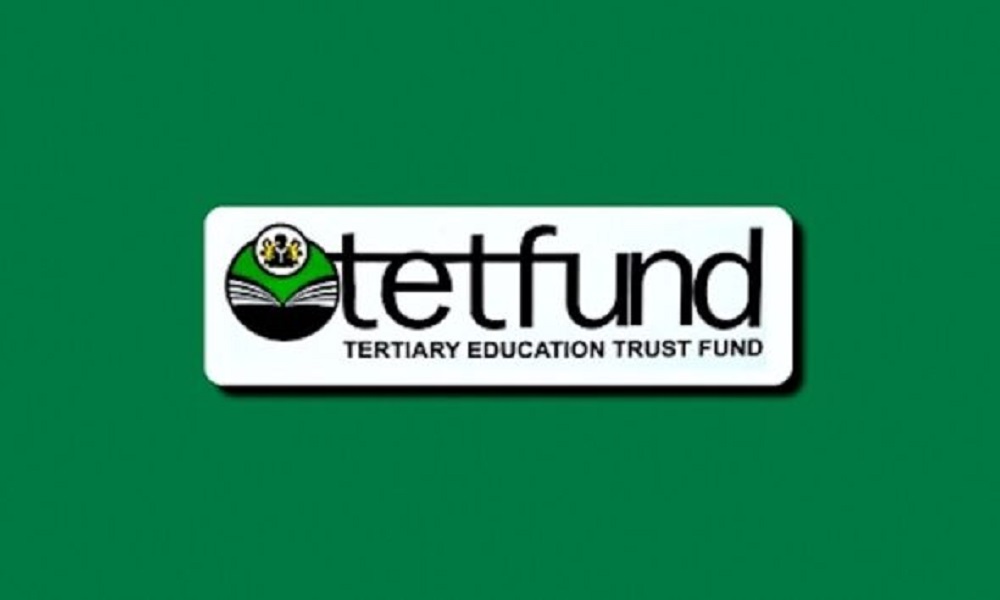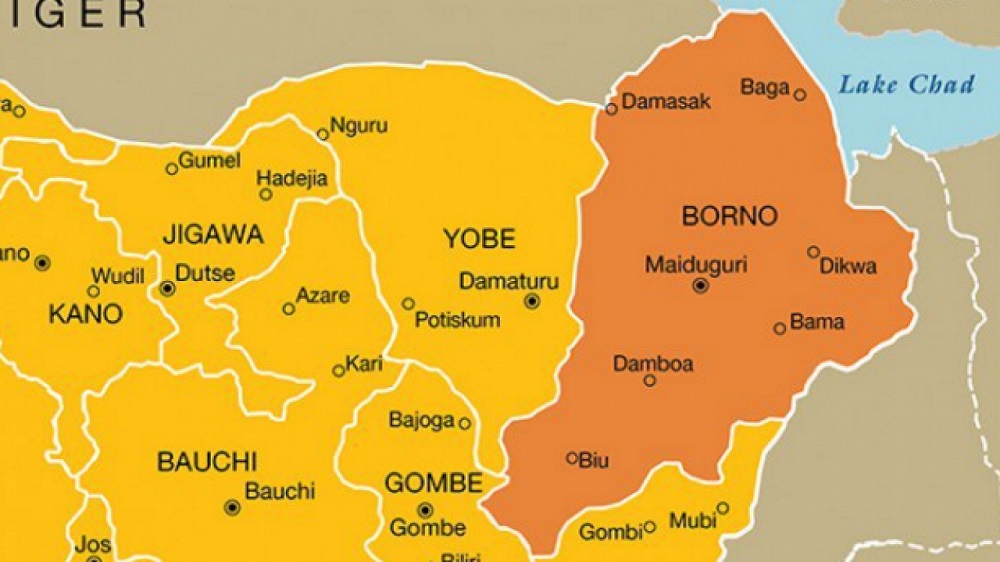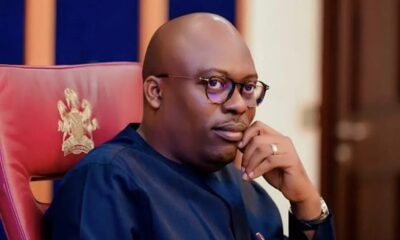News
SANs List Expectations As S’Court Justices Rise To 21

The Chief Justice of Nigeria, Justice Olukayode Ariwoola, on Monday, swore in 11 new Justices of the Supreme Court, bringing the number of Justices on the apex court bench to 21.
The development was hailed by Senior Advocates of Nigeria, who expressed the hope that it would translate to the clearing of the huge backlog of cases at the Supreme Court.
The swearing-in of the 11 Justices comes over two months after they were screened and confirmed by the Senate, acting on the recommendation of President Bola Tinubu.
Before now the number of Justices on the Supreme Court bench went down to an all-time low of 10, as opposed to 21 recommended by the Constitution.
The appointment of an additional 11 Justices, giving the Supreme Court its full complement of Justices, followed agitations and calls from several quarters on the declining manpower at the apex court.
At the swearing-in, which took place at the Main Courtroom of the Supreme Court in Abuja on Monday, the CJN noted that the 11 new Justices were joining the apex court bench “at a time when the rank had been grossly depleted to an all-time low of 10 Justices for a number of reasons, mainly retirement, and deaths.”
“The inability of the court to meet up the statutory full compliment of 21 Justices had lingered on for too long,” the CJN remarked.
Speaking with The PUNCH, a former Attorney General of Abia State, Chief Awa Kalu (SAN), said with the Supreme Court now having its full complement of Justices, “we expect them to crack down on the backlog of cases in that court. That is the expectation of everybody, and it is a legitimate expectation.”
Similarly, human rights lawyer, Mr Ebun-Olu Adegboruwa (SAN), said, “It is commendable that we have 21 Justices, but I believe it goes just beyond numbers.”
Adegboruwa said the appointment of the 21 Justices must be complemented with the provision of necessary equipment that would aid justice delivery at the apex court.
He said, “It’s important that there is a paradigm shift that will focus on equipping the Justices with the needed infrastructure and personnel to perform.
“Then limit the number of interlocutory appeals that go to the Supreme Court so that it can properly focus on policy decisions that will give a guideline on serious legal matters.
“Then the quality of the judgment. To avoid matters in which we have conflicting judgments, there’s a need for the Supreme Court to sit down and to exert its previous decisions with the purpose of harmonising seemingly contradictory views that have been expressed by the apex court.”
Meanwhile, the CJN, at the swearing-in of the Justices, charged them to brace up for the work ahead and to be prepared to face criticisms from the public.
He said they must discharge their duty in fairness and uprightness, knowing that they were representatives of God on earth.
Justice Ariwoola said, “See yourselves as the representatives of God on earth because any judgment given at this level can only be overturned in heaven.
“There is no way you can please human beings, especially litigants. The easiest way to fail in life is by trying to please everyone. The only deity you can fear is the Almighty God. Once your judgment is in consonance with what God expects from you, and is also in accordance with the Constitution, you should consider yourself the happiest and freest person on earth.”
The CJN also cautioned the Justices against allowing their ambition to cloud their sense of judgment.
“Your moral uprightness, integrity, and respect for the constitution and other extant laws in operation must be unwavering and unassailable,” he added.
The new Supreme Court Justices are Justices
Jummai Sankey, Chidiebere Uwa, Chioma Nwosu-Iheme, Haruna Simon Tsammani, Moore Adumein, Obande Ogbuinya, and Stephen Adah.
Others are Habeeb Abiru, Jamilu Tukur, Abubakar Umar, and Mohammed Idris.
News
TETFUND threatens to cut financial support to non-performing institutions

The Tertiary Education Trust Fund (TETFUND) has threatened to cut financial support to beneficiary tertiary institutions that fail to meet performance benchmarks or mismanage allocated funds.
The agency said it would de-list such tertiary institutions from its support programmes.
Executive Secretary of TETFUND, Sonny Echono gave the warning at a one-day strategic engagement with heads of institutions, bursars, and heads of procurement of the agency’s beneficiary institutions in Abuja on Monday.
Echono said the policy was not meant to punish, but rather safeguard the credibility and impact of TETFUND interventions.
He said: “Let me be clear, institutions that consistently fail to access, utilise or retire funds appropriately, or that fall short of enrollment and academic performance thresholds, risk being delisted as TETFUND beneficiary institutions.”
He also disclosed the intention of TETFUND to ensure that its resources were directed towards institutions that were committed to high standards of governance, transparency, and accountability.
Echono said the strategic engagement was targeted at addressing recurring challenges in Nigeria’s tertiary education sector, improving project execution, and enhancing the quality of education.
A key focus, he said, was the Academic Staff Training and Development (AST&D) intervention.
He said due to rising costs and incidents of scholars absconding, the foreign component of the TETFUND Scholarship for Academic Staff (TSAS) was suspended as of January 1, 2025 with emphasis now shifted to cost-effective, locally driven training.
Echono said this year’s intervention budget prioritises consolidation, sustainability, and the completion of abandoned projects.
He added: “This engagement is not merely a meeting but a strategic convergence. It is designed to address recurring issues of concern, streamline project implementation, and enhance the overall quality of tertiary education delivery in our nation.
“As we move forward, let us approach today’s discussions with openness, collaboration, and a shared vision to elevate our institutions and the students we serve.
“Together, we can strengthen accountability, drive innovation, and ensure that the legacy of TETFUND remains impactful, equitable and enduring for generations to come.”
Executive Secretary of the National Universities Commission (NUC), Professor Abdullahi Ribadu emphasised the importance of the meeting for evaluating the implementation and impact of TETFUND – supported projects in higher education institutions.
The NUC chief, who was represented by Dr. Joshua Atah appreciated TETFUND’s vital role in improving infrastructure, research, staff development, and academic quality, stating that without its support, public education would struggle to survive.
Prof. Ribadu acknowledged the adaptability of TETFUND’s policies, such as suspending international scholarships to reallocate resources more effectively.
He urged tertiary institutions to be more responsive and ensure that interventions were relevant and efficiently executed.
Ribadu encouraged judicious and timely use of funds and called for open and constructive dialogue during the engagement.
“This calls for greater responsiveness also on the part of the institutions. This responsiveness also includes the areas of the design and implementation of these interventions to ensure that they remain relevant, impactful, and aligned with the future of education in Nigeria.
“It’s also important that we judiciously utilise these resources, and not just judicious utilisation but also in a timely manner so that we don’t lose the fund,” he said.
News
Again, Boko Haram reportedly attack military base in Borno

Suspected Boko Haram terrorists have attacked a Nigerian Army base in Marte , the headquarters of Marte Local Government Area of Borno State with casualties
The terrorists attacked the 153 Task Force Battalion’s Forward Operation Base (FOab) at around 3am on Monday, according to the locals and security sources.
They said the terrorists also burnt armoured tanks and seized arms and ammunition from the base during the attack.
“ISWAP has taken over Marte. An unspecified number of soldiers were killed, some captured, and many others fled towards Dikwa.
“They are currently at the 24 Task Force Brigade in Dikwa,” a source said.
Recent terrorist attacks have targeted several military formations in Borno and Yobe, including Sabon Gari and Buni Yadi, with the latest being the attack on the 153 Task Force Battalion.
Attempts to reach Maj-Gen Markus Kangye, Director of Defence Media Operations, were unsuccessful as he didn’t answer calls or respond to text messages.
News
Taraba Woos Global Investors Ahead of Landmark Economic Summit

…Taravest 2025 to Unlock Opportunities in agric, energy, mining
…as state offers peace, resources, incentives
By Gloria Ikibah
The Federal Government and Government of Taraba State have called on the international community and private sector players to partner with Taraba in unlocking the state’s massive investment potentials across agriculture, energy, mining, and tourism.
This call comes ahead of the Taraba International Investment Summit (Taravest), with the theme: “Unlocking Taraba’s Investment Potentials, Advancing Agriculture, Energy, Mining and Industrialization for sustainable development “, scheduled for May 21, 2025, in Jalingo, Taraba state.
Speaking at the diplomatic preparatory briefing in Abuja, the Minister of Foreign Affairs, Ambassador Yusuf Maitama Tuggar, who was represented by Ambassador Anderson Madubike commended the initiative, describing it as a platform that aligns with Nigeria’s economic diplomacy agenda.

“I wish to commend His Excellency and indeed the Government of Taraba State for convening this timely summit, particularly at this time when the whole world is in need of creating a travelling investment climate through co-location. There is therefore the need for partnership between governments, private sector players, and civil societies,” the Minister stated.
He emphasised that Taravest represents “a collective pursuit of development and prosperity, not only for Taraba State, but indeed for the whole world.
“They have enormous resources—we’re talking about gold, we’re talking about uranium, and many others, and of course agriculture, fertile land, which you know, food, is the way to go”, he added.
Ambassador Madubike noted that the theme for the summit, themed “Unlocking Taraba’s Investment Potentials: Advancing Agriculture, Energy, Mining, and Industrialization for Sustainable Growth,” is expected to attract both local and international stakeholders.
“Our presence here signifies a commitment to making Taraba a model of investment and sustainable development,” he said.
In his address, the Executive Governor of Taraba State, Dr. Agbu Kefas, expressed gratitude to the Federal Ministry of Foreign Affairs and extended an open invitation to diplomats and investors.
Dr. Agbu highlighted the significance of the summit as the first of its kind since the state was created in 1991, and laid out three clear objectives.
“It is my great honor to welcome you to the Paivota Preparatory Meeting for the Taraba State International Investment Summit, Taravest 2025, in just nine days to come.
“To orient you to Taraba’s untapped potentials and the structure of the summit; to inspire your confidence in our security, infrastructure, and business environment; and to enlist your support in rallying investors, technical partners, and development agencies”, the governor said.
He emphasised Taraba’s strategic strengths, citing five core advantages, this is as he reassured guests about the state’s security readiness.

“Peace and security, over 44,000 km² of fertile land for agriculture, massive hydropower and solar capacity, rich mineral reserves including gold, barite, and lithium, and growing opportunities in tourism and the digital economy.
“I want to assure you that we have coordinated with the state security services, the Nigerian military, the Nigerian police, and our traditional rulers… to guarantee your safety”, he added.
The summit, he explained, will feature B2B and B2G matchmaking, policy dialogues, PPP frameworks, and guided site visits to model farms and mining zones.
“Taravest 2025 is more than a conference. It is a statement of fact that Taraba is open for transformative partnership. I invite you to leverage your good offices to mobilize your government and business communities,so that together we will convert promise into progress and unlock a future of shared prosperity”, Dr. Agbu added.
He also urged embassies to submit the names of participating investors and delegates by May 16, 2025, to ease logistics.
Taravest 2025, which will hold at the Banquet Hall of the Government House in Jalingo, aims to attract capital, expertise, and innovation to transform Taraba into a thriving investment destination and economic powerhouse.
-

 News18 hours ago
News18 hours agoJust in: Wike admits Fubara alongside 2 govs visited him on reconciliatory moves
-

 News21 hours ago
News21 hours agoRivers crisis: Wike’s aide mocks Fubara, advises him to honourably quit since his spirit has left Brick House
-

 News15 hours ago
News15 hours agoGo home to face corruption probe, protesters in London tell Kyari (Photos)
-

 News21 hours ago
News21 hours agoJapa! UK to End Overseas Care Worker Recruitment to Cut Migration
-

 Economy20 hours ago
Economy20 hours agoSEE Black Market Dollar (USD) To Naira (NGN) Exchange Rate Today 12th May 2025
-

 News21 hours ago
News21 hours agoJust in: Chris Piwuna emerges as new ASUU President
-

 News18 hours ago
News18 hours agoAMCON, Others Dragged to Court Over Alleged Undervalued Sale of Ibadan Disco for $62m
-

 News21 hours ago
News21 hours agoUS and China Reach Trade Accord Deal After Geneva Talks






